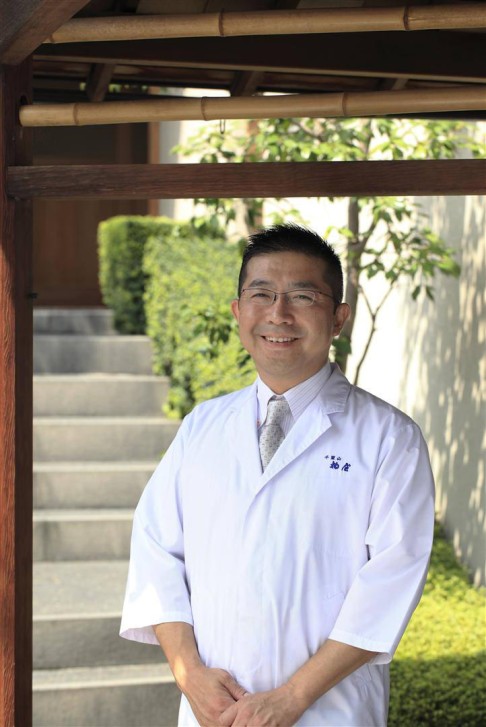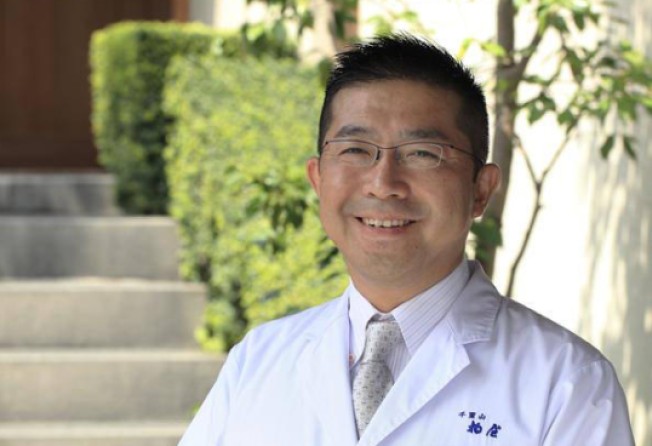
Michelin-star Osaka chef on opening his Hong Kong restaurant, and his thing for rice
Hideaki Matsuo, who this week opens the first overseas branch of his three-Michelin-star restaurant, Kashiwaya, tells Vanessa Yung about the masters from whom he learned


What are your fondest memories of food? "That would be my mother cooking hourensou no goma-ae, which is boiled spinach with sesame dressing. When I was three or four years old, I used to help my mum prepare the dish by roasting the sesame seeds by shaking them in a pan over the grill."
What inspired you to become a chef? "When I was a kid, I loved to eat tasty food. But that didn't directly ignite my desire to become a chef. It was after I went to university and met Soukou Ikeda, my master in tea ceremony, that I became interested in creating a thoroughly enjoyable experience for guests by not only paying attention to the tea but also to the food, atmosphere and service. I was more like a producer, rather than a chef, but that's the basic philosophy behind kaiseki cuisine. Eventually, I wanted to be in charge of everything, including the cooking."

Why didn't you join your family restaurant at the start of your career? "In Japan, we think it's important to go outside to experience something different. So it was natural for me to go and get trained at Shofukuro [in Tokyo] instead of at the 38-year-old family restaurant, Kashiwaya. Shofukuro is pretty famous and is known for keeping traditions while taking in new ideas. I like the philosophy of chef Hidetaro Nakamura, and wanted to be trained there. After a few years, in 1992, I took the helm at Kashiwaya."
Even when 99 out of 100 guests who come to my restaurant don't understand every single detail ... there might still be one person who will understand
Who has had the most influence on your career? "Both Ikeda and Nakamura changed my life. But what I learned from them is the same: that cooking is something I do to entertain guests and express my world. When I do that I should not compromise on anything. I have to seek perfection. Even when 99 out of 100 guests who come to my restaurant don't understand every single detail - from the flower I used to decorate the room to the bowl I chose to serve my food in - there might still be one person who will understand. Everything is there for a reason and together they express my world and philosophy in a perfect way."
Will the Hong Kong branch of Kashiwaya be an exact replica of the Osaka venue? "We cannot exactly imitate the restaurant because in Osaka it's in a house, and in Hong Kong we're in part of a building. But I expect 100 per cent precision so our Hong Kong clients can enjoy the Kashiwaya philosophy in terms of the cooking, interiors and atmosphere. The two master chefs, including chef Atsushi Takahashi, who has been with me for more than 20 years, are from Japan. A chef from Hong Kong has spent five weeks at our Osaka venue to experience the Kashiwaya spirit."

How will you split your time between Hong Kong and Osaka? "Kashiwaya Hong Kong provides almost the same dishes as Kashiwaya Osaka, and we'll change our menu according to the seasons. I'll be based in Osaka but whenever it's time to change the menu, I'd like to come to Hong Kong and see what people think. There could be a possibility that people from Japan like it but those from Hong Kong don't, then I will have to modify it quickly somehow."
What would you be if you weren't a chef? "I did physics at university and I love airplanes. If I could, I'd be a pilot, but I have weak eyesight."
Is there one food you're obsessed with? "Japanese white rice. I don't have a favourite production site or type of rice as such, and I've tried many different types from different farms at different seasons. What I look for in good rice is the flavour and sweetness - it can be very subtle but different."
What do you cook at home? "It's quite spontaneous and depends on what I can find in my fridge. It's all about what I feel like at that time. I'm a little good at cooking [laughs]."
Kashiwaya, 8/F, 18 On Lan Street, Central. For reservations, please email [email protected]